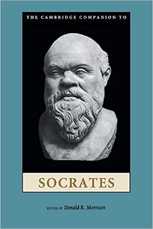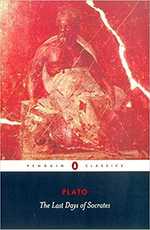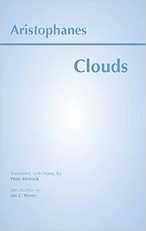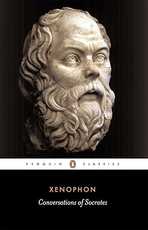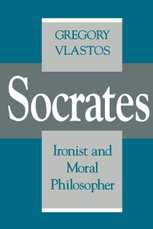

Socrates The Best 5 Books to Read
Socrates is philosophy’s martyr. Sentenced to death in 399 BCE Athens for ‘corrupting the minds of the youth,’ Socrates never wrote anything down. We know of his era-defining thinking only through the writings of his contemporaries, particularly his student Plato.
The influence of Socrates on the history of Western philosophy is difficult to overstate. By influencing Plato, who in turn set up the Academy to influence many philosophers including Aristotle, Socrates laid the foundations for the entirety of the west’s intellectual canon.
Plato’s Socratic dialogues — some of the most wonderful works in the history of philosophy — feature Socrates in lively conversation with influential Athenians on a wide range of subjects, from epistemology, metaphysics, and ethics to art, justice, and politics, in an attempt to find certain knowledge.
In one concise email each Sunday, I break down a famous idea from philosophy. You get the distillation straight to your inbox:
💭 One short philosophical email each Sunday. Unsubscribe any time.
In Plato’s dialogues, Socrates is presented as unfailingly ruthless in his hunt for certainty. He uses what is now known as the Socratic method — a form of argumentative dialogue that uses incisive questioning to stimulate critical thinking and draw out presuppositions — to show up his interlocutors as being entirely lacking in whatever knowledge they may have claimed to hold at the beginning of the discussions. He infamously declares (in what’s now referred to as the Socratic paradox) that the only certain knowledge is that we know nothing.
Socrates’s activities, though perhaps noble in their pursuit of truth, made a lot of powerful people in Athens look very foolish. A hero to some, a nuisance to others: Socrates became a popular, controversial figure — occasionally ridiculed in the plays of the comic dramatists of the period, and eventually sentenced to death by the Athenian authorities.
Everything we know about Socrates, presented as he is through legend and the writings of others, must be taken with a pinch of salt. Nonetheless, his legacy as the brilliant martyr of philosophy remains secure, decorated by an epitaph of his own making:
The unexamined life is not worth living.
This reading list consists of the best introductions and discussions of Socrates’s thinking, as well as the best primary sources from ancient times that document his life and philosophy. Let’s dive in!
1. Socrates: Ironist and Moral Philosopher, by Gregory Vlastos
Published in 1991, Gregory Vlastos’s celebrated Socrates: Ironist and Moral Philosopher is a fantastic place to start for anyone with an interest in Socrates and his central place at the turning point of Western philosophy.
Considering Socrates never wrote anything down, Vlastos provides a clear, illuminating assessment of ancient source material to paint a vivid picture of Socrates the man, as well as Socrates the great philosopher.
With its consistent, considered, nuanced analysis on the Socratic search for how we should live, Socrates: Ironist and Moral Philosopher is essential reading for anyone interested in why Socrates is one of the most important figures in philosophy.
2. The Cambridge Companion to Socrates, by Donald R. Morrison
If you’re seeking to dive a little deeper with your Socrates scholarship, look no further than The Cambridge Companion to Socrates, edited by Donald R. Morrison in 2010.
Morrison draws together a fantastic collection of essays from various scholars discussing Socrates’s views on knowledge, reality, politics, ethics, love, and the arts.
With its 436 pages packed full of insight — with chapters ordered in a linked, progressive sequence — The Cambridge Companion to Socrates is a brilliant accompaniment for those seeking a deeper understanding of Socrates’s thought.
3. The Last Days of Socrates, by Plato
Turning from introductions to ancient primary sources, where better to start than with a tome still routinely adored and studied by undergraduate philosophy students to this day?
Plato’s The Last Days of Socrates includes four superb dialogues — Euthyphro, Apology, Crito, and Phaedo — that cover the trial and death of Socrates in 399 BCE.
Serving as an ideal introduction to the Socratic dialogues, the works in this collection are among Plato’s earliest and record Socrates debating the nature of piety, justice, death, and the immortality of the soul in brilliant, highly-charged prose.
Hugely entertaining and wise — a collection to defy anyone who thinks philosophy is boring or stuffy — The Last Days of Socrates belongs on the bookshelf of anyone interested in Socrates, Plato or the happenings of ancient Athens.
4. The Clouds, by Aristophanes
A famous comic play in its own right, the ancient dramatist Aristophanes’s The Clouds provides a sharp contrast to the rather heroic and wise Socrates we find in Plato’s dialogues.
The Clouds lampoons Socrates as a comic figure. In fact, some of the accusations that Socrates faces in Plato’s The Last Days of Socrates find their origin here, with the play possibly impacting Socrates’s chances of receiving a fair trial.
As well as it being incredible that we have this 2,500-year-old counterpoint to Plato, Aristophanes’s play is an important read philosophically, revealing common rebutalls Socrates faced from his contemporaries. For those looking to broaden their perspective on Socrates, this is an essential read.
5. Conversations of Socrates, by Xenophon
For another counterpoint to Plato, consider the only other contemporary Socratic portrait to survive: Xenophon’s Conversations of Socrates.
Like Plato, Xenophon hugely admired Socrates, and with these dialogues he seeks to rehabilitate the image of the man condemned to death by the Athenian authorities. Unlike Plato, however, Xenophon paints a picture not of an abstract, rather eccentric philosopher concerned with theoretical topics, but of a practical man focused primarily on improving civic life.
Though perhaps less philosophically compelling than Plato’s Socrates, Xenophon’s portrayal of the great philosopher makes for a fascinating contrast. If you’re intent on getting a well-rounded overview of Socrates the man, Xenophon’s Conversations of Socrates is indispensable.
6. Plato: Complete Works, by Plato
If you’re looking for a one-stop shop for all of Plato’s Socratic dialogues, it doesn’t get much better than Plato: Complete Works, edited and introduced by Cooper and Hutchinson.
The entire surviving corpus of works attributed to Plato is presented here in modern translations with useful contextual information on composition and chronology, as well as essential discussion on the extent to which the Socrates that features in each text is the historical Socrates himself, or Socrates the Platonic character, whom Plato preserved even after Socrates’s death (as discussed in our Plato reading list).
This is unarguably the definitive edition of Plato’s writings in English, in which his profoundly thought provoking and entertaining dialogues sing. At 1,800 pages, it’s a beast of an anthology — but you won’t need another!
Further reading
Are there any other books you think should be on this list? Let us know via email or drop us a message on Twitter or Instagram.
In the meantime, why not explore more of our reading lists on the best philosophy books:

View All Reading Lists
Essential Philosophy Books by Subject
About the Author

Get one mind-opening philosophical idea distilled to your inbox every Sunday (free)

From the Buddha to Nietzsche: join 20,000+ subscribers enjoying a nugget of profundity from the great philosophers every Sunday:
★★★★★ (100+ reviews for Philosophy Break). Unsubscribe any time.

Latest Breaks
Each philosophy break takes only a few minutes to read, and is crafted to expand your mind and spark your curiosity.
